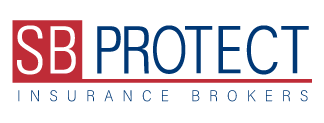Running a small business is tough enough without worrying about getting scammed.
However, criminals are increasingly targeting small business owners, including when it comes to insurance. They may act online, in person or via the phone.
This article will detail different types of insurance scams targeting businesses like yours and how to protect yourself.
Why you need to be aware
Insurance scams are more common than you might think, and they can have serious consequences for your business. You could be out of pock for fake policies, and lack proper coverage when you need it most, or even face legal trouble.
Here’s how to avoid the pitfalls.
The tricks of the trade
Scamming comes in many forms, but the tactics often follow a pattern. Here are some of the most common insurance scams that target small businesses:
- Fake policies: Be wary of anyone offering insurance coverage that seems too good to be true. These ‘ghost brokers/advisers’ might be selling you a policy that doesn’t actually exist
- Don’t pay in cash: Or bitcoin, a digital wallet app such as PayPal or Venmo. That’s not how bona fide insurers and brokers/advisers work!
- Premium theft: This scam involves someone collecting your insurance premiums but never actually securing coverage for your business. Or, the scammer may have intercepted an online transaction
- Policy manipulation: Scammers might try to alter your existing policy terms or benefits without you knowing, leaving you with less coverage than you think you have, and
- Unnecessary coverage: Some unscrupulous agents might push you to buy expensive insurance policies that your business doesn’t actually need
When you’re applying for a policy, you’re handing over a lot of personal data, so be extra careful who you’re sending it to and how. Does their email address look unprofessional, such as a Gmail account?
The cost of getting scammed
Falling victim to an insurance scam can have a devastating impact on your business. Here’s what’s at stake:
- Financial loss: You could lose money on premiums for fake policies or overpriced coverage
- Lack of coverage: If a scam leaves you without proper insurance, you’ll be financially exposed if something goes wrong
- Legal and reputational risks: Unintentional non-compliance due to a fake policy could lead to legal trouble and damage your business reputation, particularly if you need coverage to stay compliant, and
- Stress and anxiety: Dealing with an insurance scam can be stressful and time-consuming for you and your employees
Spotting the red flags
Knowing how to recognize a scam is crucial. Here are some warning signs:
- Unsolicited offers: Be wary of insurance calls or emails which you didn’t request. Legitimate companies typically won’t cold-call you
- High-pressure tactics: If someone is pressuring you to make a quick decision or pay right away, that’s a red flag
- Unclear or inconsistent documentation: A legitimate insurance policy should be clear and easy to understand. Avoid policies with complex wording or missing details. Consider if the broker/adviser struggles to give you basic information, and
- Suspicious payment methods: Never pay premiums to personal accounts or through untraceable methods like gift cards. If your suspicions are raised, Google the provider’s phone number and confirm the payment details over the phone.
By the way, when a legitimate broker/adviser such as us calls, you won’t see ‘withheld’ number on your smartphone.
How to protect yourself
The good news is there are steps you can take to protect your business from insurance scams. Here are some tips:
- Verify credentials: Always check the legitimacy of any insurance company or agent before doing business with them. Note that last year there were 2,700 reports about false, aka ‘shadow’, business websites last year
- Understand your needs: Having a good understanding of the insurance coverage your business actually needs helps you avoid unnecessary policies, and
- Work with a broker/adviser:A reputable insurance broker/adviser can help you find the right coverage and protect you from scams.
Pay it forward too. Report scams and would-be scammers to SCAMWATCH.
Taking control
By being vigilant and proactive about your insurance, you can significantly reduce the risk of falling victim to a scam. Educate yourself and your staff about these scams and don’t be afraid to ask questions.
With the right approach, you can ensure your business has the proper insurance coverage without getting ripped off.





